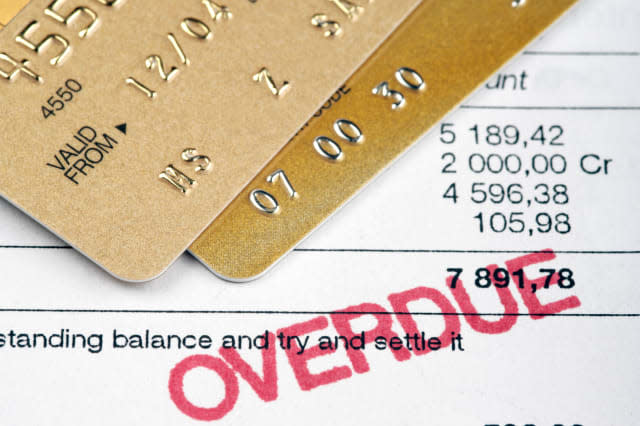Could a £7.60 debt stop you buying a house?

A new study has revealed that 1.2 million people aged between 18 and 34 have missed a bill payment. It's hardly surprising: these are busy and messy years, where paperwork and admin aren't always at the forefront of people's minds.
They may have forgotten to pay the last bill of a mobile phone contract, or accidentally left a utility bill debt when they moved house. The problem is, however, that years down the line, they could find this small oversight costs them dearly when they try to borrow money.
Some 70% of young people have no idea that forgetting a bill like this could come back to bite them. The most common reason people gave for missing a payment was that they already thought the final payment had been paid (27%) but almost a quarter thought it didn't matter (23.4%).
The research, by ClearScore, also found that 31% of young people have been rejected for either a mortgage, store card, personal loan, mobile phone contract or car finance - in many cases because a missed payment has shown up on their account.
The study found that the average unpaid bill is just £7.60, so people are hardly skipping the country to dodge enormous debts. However, it's enough to get them refused a mortgage, because any unpaid bill will damage your credit rating.
To make matters worse, if you have completely forgotten this unpaid bill, there's a good chance you won't realise why you have been rejected, and will simply apply for another form of credit. These applications will all show up on your credit file - and act as red flags to borrowers who may assume you are amassing mountains of debt - making it harder and harder for you to borrow in the future.
CEO and founder Justin Basini comments: "Missing a minor payment may seem harmless at the time, but it can come back to haunt you. The consequences of defaulting on a payment – even it's just a small amount – can be huge. A lender will take into account the information in your credit report before giving you a mortgage or a credit card. This isn't just about how much you owe or earn, but more importantly how you have managed your credit in the past."
What can you do?
Basini points out that: "Unless it's a bank or credit card firm, organisations aren't legally required to let you know you're about to default on a payment. The onus is therefore on us to keep track of what we owe to whom."
It's important to keep files for all the bills you have to pay, so you know what is due, and when, and can revisit them when closing any account, to be certain you have paid the final bill.
If you think there may be old bills that have been neglected for a while, your best bet is to check your free credit report with an organisation like ClearScore, or a paid version like Experian (which offers a 30-day free trial) or Equifax.
Your report will show you anything outstanding, and any details that may count against you when you apply for credit. Once you know your true situation, you can pay any outstanding debts, improve any problems, and stop applying for credit you are unlikely to be accepted for.





